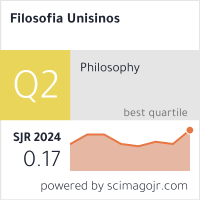Capital and Barbarity
Resumen
Modernity – mainly in its illuminist zenith – has given rise to the belief in a promising future founded, according to Smith, on the productive powers of labor. But still in the 18th century, in the midst of a generalized optimism confirmed in the genesis of historicity (understood as “progress”); Rousseau already protested against the belief in technique as the panacea to solve all human problems. Marx demonstrates that capital is a powerful stimulator for the development of production forces, but it entails the alienated submission of the process of social reproduction to the valuing of value (Verwertung des Werts) along with the portion of barbarity that is immanent to it. The permanent and unlimited growth of capital, the climactic figure of the fetishoid triad (merchandise, money and capital), can only take place at the expense of the subordination of the satisfaction of human needs and of human life to its purposes. Thus, by creating wealth under the form of use values capital produces also misery because of its own immoderation and of the tensions that are immanent to the valuing of value.
Key words: capital, barbarity, Marx, crisis, fetishism.Descargas
Métricas
Descargas
Publicado
Cómo citar
Número
Sección
Licencia
Concedo a revista Filosofia Unisinos – Unisinos Journal of Philosophy o direito de primeira publicação da versão revisada do meu artigo, licenciado sob a Licença Creative Commons Attribution 4.0 (que permite o compartilhamento do trabalho com reconhecimento da autoria e publicação inicial nesta revista).
Afirmo ainda que meu artigo não está sendo submetido a outra publicação e não foi publicado na íntegra em outro periódico e assumo total responsabilidade por sua originalidade, podendo incidir sobre mim eventuais encargos decorrentes de reivindicação, por parte de terceiros, em relação à autoria do mesmo.










